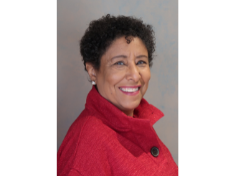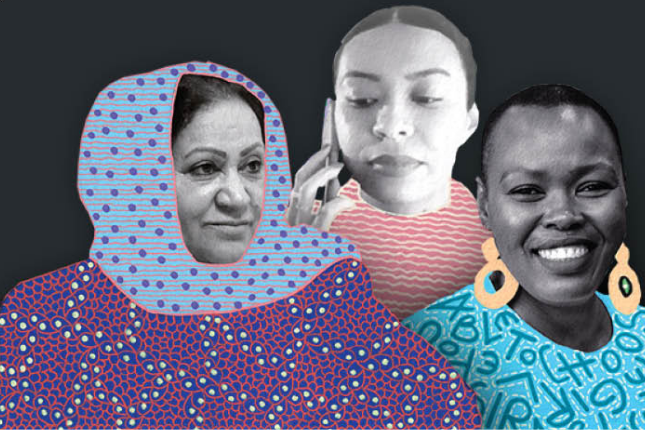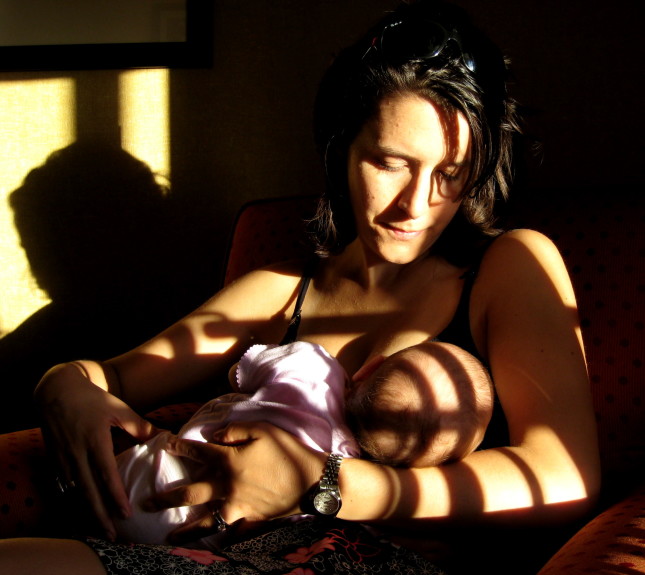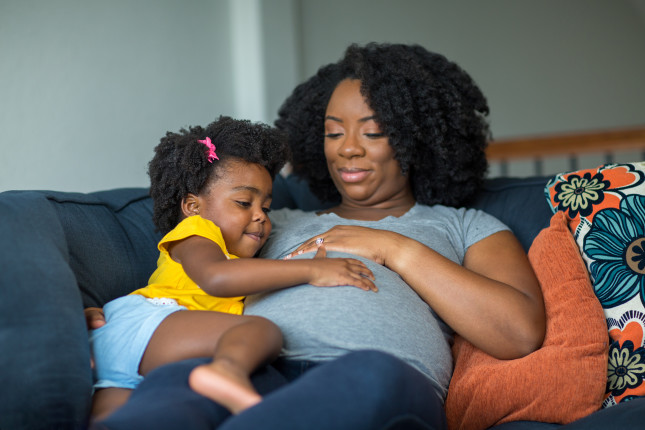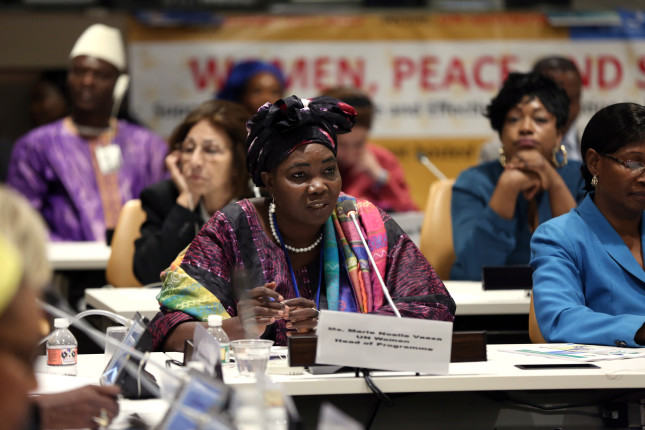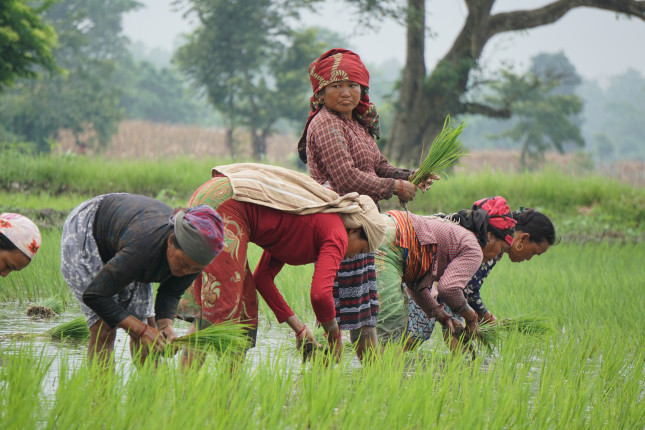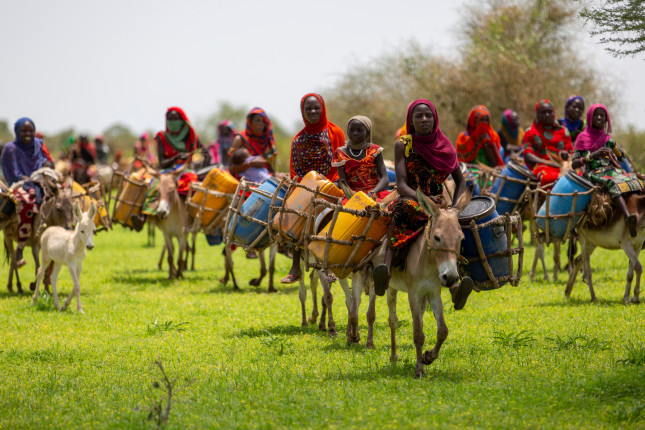-
A Conversation with Dr. Nahid Toubia: Bodily Autonomy and the 2021 State of World Population Report
›Africa in Transition // Dot-Mom // Friday Podcasts // May 28, 2021 // By Hannah Chosid & Deekshita Ramanarayanan Bodily autonomy is something almost innate in us, and yet also a Eureka moment for many people, says Dr. Nahid Toubia, Director for the Institute of Reproductive Health and Rights in Sudan on this week’s episode of Friday Podcasts. “Every human being really has the right to own their body, to own their decisions, to own their choices regarding their life, their futures, how they want to live, who they want to partner, whether they want to have children or not, what kind of families they want to have,” she says. “So, all of these choices are all wrapped up in this concept of body autonomy.”
Bodily autonomy is something almost innate in us, and yet also a Eureka moment for many people, says Dr. Nahid Toubia, Director for the Institute of Reproductive Health and Rights in Sudan on this week’s episode of Friday Podcasts. “Every human being really has the right to own their body, to own their decisions, to own their choices regarding their life, their futures, how they want to live, who they want to partner, whether they want to have children or not, what kind of families they want to have,” she says. “So, all of these choices are all wrapped up in this concept of body autonomy.” -
State of the World’s Midwifery Report 2021: Follow the Data, Invest in Midwives
›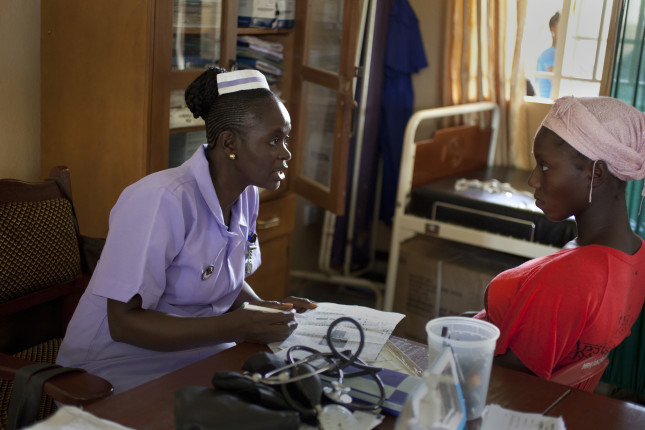
“Every day in every part of the world, midwives save the lives of women and babies and promote the health and well-being of entire communities,” writes UNFPA Executive Director Dr. Natalia Kanem in honor of International Day of the Midwife. “They deserve our respect and gratitude, but that is not enough. Midwives deserve greater investment in their capabilities, and workplaces that empower them and fully acknowledge their skills and contributions.” Investment in midwifery could save millions of lives per year – an estimated 4.3 million annually by 2035.
-
My Body, My Voice, My Choice: Launching UNFPA’s 2021 State of World Population Report
›
“As we’re talking, the bodily autonomy of millions of women and girls around the world is still denied,” said Klaus Simoni Pedersen, Acting Director of the Division of Communications and Strategic Partnerships for the United Nations Population Fund (UNFPA) at the recent U.S. launch event of the 2021 UNFPA State of the World Population report, hosted by the Wilson Center and UNFPA. The report, My Body is My Own: Claiming the Right to Autonomy and Self-Determination, examines the global status of women and girls as reflected in their agency and decision-making power.
-
How We Birth Babies Makes It Hard to Breastfeed
›
Breastfeeding may seem natural. Yet many women find it hard to get off to a good start with breastfeeding. Sharp decreases in breastfeeding rates around the world reflect this continuing challenge. While most women still choose to breastfeed, many ultimately feel they have no other choice than to stop breastfeeding earlier than anticipated. In the UK, 80 percent of mothers surveyed said they stopped breastfeeding before they wanted to. Many women describe shattered expectations, feelings of deep sadness, guilt, and anger from their breastfeeding experience.
-
Black Maternal Health Week 2021 Achieves Historic White House Recognition
›
“This week is Black Maternal Health Week, and make no mistake, Black women in our country are facing a maternal health crisis. Black women are two to three times more likely to die in connection with childbirth than other women. We know the primary reasons why—systemic racial inequities and implicit bias,” said Vice President Kamala Harris at a White House Roundtable she hosted with Ambassador Susan Rice in honor of Black Maternal Health Week. The event was the first event of its kind at the White House—Black women who have experienced loss and complications during pregnancy, childbirth, and postpartum were invited to share their experiences and their work in Black maternal health advocacy and research.
-
Smart Power: Leveraging the Women, Peace, and Security Agenda
›
“Without women and empowering women, there will be no peace,” said Dr. Valerie Hudson, Distinguished Professor and George H.W. Bush Chair at Texas A&M University. Hudson spoke at an event by the United States Institute of Peace (USIP) and the United States Department of Defense (DoD) in collaboration with the United States Civil Society Working Group on Women, Peace, and Security (U.S. CSWG). The event focused on how the United States can leverage the United Nation’s Women, Peace, and Security (WPS) agenda to advance gender equality and promote peace worldwide.
-
Embracing Risk: Lessons Learned from Integrating Climate Adaptation and Biodiversity Conservation in Nepal
›
The Hariyo Ban Program is one of the best examples of a sustainable development initiative that I’ve ever seen, said Nik Sekhran, Chief Conservation Officer of the World Wildlife Fund-US during a recent Wilson Center event on lessons learned from a decade of building resilience through participatory and inclusive natural resource management, climate adaptation, and biodiversity conservation in Nepal.
-
No Peace Without Water, No Water Without Peace, and Neither Without Women’s Empowerment
›
Water deprivation is increasingly recognized as a political and security problem. Tensions resulting from the growing imbalance between global water demand and supply can escalate into conflict. Efforts to solve water-related conflicts and promote water cooperation for peace, termed “water diplomacy” or “hydro-diplomacy,” continue to be male-dominated. Several recent events and related publications are contributing to bridging this persistent gender gap.
Showing posts from category gender.


